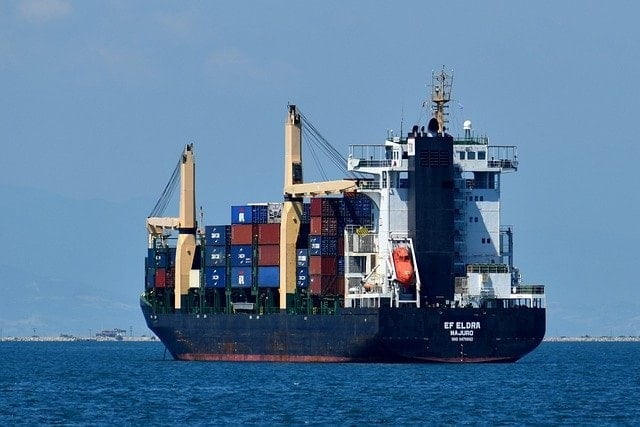Cyprus is seen as one of the most attractive shipping hubs in the world. A number of ship management companies operating in Cyprus are considered amongst the largest of their type. Cyprus is a member of many international maritime organisations such as the International Maritime Organisation (IMO), the International Labour Organisation (ILO) and the European Maritime Safety Agency (EMSA). Services provided in Cyprus hold the highest level of quality and are monitored by the Maritime Administration which includes the Ministry of Communications and Works, the Department of Merchant Shipping and Ports Authority.
One of the main reasons however behind the growth of Cyprus shipping industry is its tax legislation. Cyprus holds an EU approved Tonnage Tax System (TTS) that was introduced back in 2010 under Merchant Shipping Law. A few of the most significant advantages of this tax system are presented below:
- TTS allows mixed activities between a company/group. This allows for all shipping activity to be taxed under TT while all the other activities are taxed under corporation tax.
- Registration process is quick and with low costs
- No tax on qualifying shipping activities other than TT
- Full protection of financiers and mortgagees
- 28 Merchant Shipping Bilateral Agreements
- No tax on wages of seafarers on qualifying Cyprus flag ships
- No wealth/inheritance tax
- No capital gains tax
- Access to all European directives
- No tax on dividends paid out of the profits made from qualifying shipping activities
The regime covers qualifying persons, performing qualifying activities in relation to qualifying ships. See definitions of all three elements below:
Qualifying person can be any ship-owner, charterer and ship manager.
Qualifying activity for ship-owners and charterers is defined as transport of goods or passengers between Cyprus ports and foreign ports/offshore facilities or between foreign ports or offshore installations. While for ship-managers a qualifying activity is defined as the provision of technical and/or crewing services to a qualifying ship.
Qualifying ship: A qualifying ship is defined as a seagoing vessel that:
- Is certified with international or national principles and regulations
- Is registered in the ship register of any member of the International Maritime Organisation (IMO) or the International Labour Organisation (ILO) which is recognised by Cyprus
The below vessels are excluded from the above definition and are not considered to be a qualifying vessel:
- Fishing boats
- Boats used for sporting activities and entertainment purposes
- Ferries and trailer boats
- Floating hotels, restaurants and casinos
- Non self-propelled floating cranes
- Non sea-going trailers
- Private yachts
- Non-ocean going tug boats and non-ocean going dredgers
In most situations, companies can select to be taxed on the basis of their net tonnage instead of being taxed on their actual profits from their maritime activities. See tonnage tax rates below:
| Units Of Net Tonnage | Ship-owners & Charterers €TT per 100 units | Ship-managers €TT per 400 Units |
| 0-1,000 | 36.50 | 36.50 |
| 1,001 – 10,000 | 31.03 | 31.03 |
| 10,001 – 25,000 | 20.08 | 20.08 |
| 25,001 – 40,000 | 12.78 | 12.78 |
| 40,000 | 7.30 | 7.30 |
Cyprus TTS includes three main maritime activities; ship ownership, ship management and ship chartering activities. Beneficiaries can be ship owners, ship charterers or ship managers that own, charter or manage a qualifying vessel that is involved in a qualifying shipping activity.
An analysis of the three main maritime activities is seen below:
- Cyprus Tonnage Tax System- Ship Ownership:
The TTS relates to any ship-owner of a qualifying vessel that carries out qualifying activities. This consists of the following:
- Cyprus Flag Vessels
- EU/EEA flag vessels that are owned by a Cyprus tax resident company and choose to be taxed under the TT regime (under conditions)
- Fleet of EU/EEA and non EU/EEA vessels that are owned by a Cyprus tax resident and choose to be taxed under the TT regime (under conditions)
- Owners of re-flagged ships
Owners of Cyprus flag vessels are automatically taxed under TTS and do not have the option to be taxed under Corporation tax. On the other hand, Cyprus tax resident ship owners of non-Cyprus flag vessels can select to be taxed under TTS regime following certain criteria.
If the ship-owner decides to follow through with the TT regime, the ship-owner must be a Cyprus tax resident and this option must continue for a minimum of 10 years.
Under TT regime, the qualifying ship owners are exempt from Income tax on the below:
- Profits from the use of a qualifying vessel
- Profits from the disposal of shares in a ship-owning company
- Profits from the disposal of the qualifying ship
- Dividends paid out of the above referred to profits at all distribution levels
- Interest income received on funds used as working capital, or on income from shipping operations
- Cyprus Tonnage Tax System – Ship Chartering
All vessels (Cyprus/ EU/ EEA/ Fleet) chartered in qualifying shipping activity (bareboat, demise time, voyage charter) can choose to follow the TT regime, assuming that the charterer is a legal person Cyprus tax resident. As with the ship-owners, the TTS has to be followed for a minimum of 10 years. If the TT option is not exercised, then profits are taxed at 12.5% under corporation tax.
The below types of income is tax exempt for Ship Charterers:
- Profits from the use of a qualifying vessel
- Dividends paid out of the above profits at all distributions levels
- Interest income related to the working capital/qualifying activity as well as any interest on capital that was used for investments
- Cyprus Tonnage Tax System – Ship managers
A ship-manager is defined as a Cyprus tax resident legal person that offers technical/ crewing services on behalf of a qualifying vessel. The rates applicable to ship managers are 25% of those applied for ship owners and charterers. If the TT is not selected, then all profits are taxed under 12.5% corporation tax.
There are a few criteria that ship managers must match in order to have the option to be taxed under TTS. Criteria are listed below:
- The ship manager must hold an independent office in Cyprus that employs a sufficient amount of workers, all with the appropriate experience and expertise
- At a minimum, 51% of total onshore staff must be EU/EEA citizens
- At a minimum 2/3 of total tonnage under management must be managed within the EU/EEA in any set fiscal year
- Crew managers must follow provisions of Maritime Labour Convention and Ship managers must be certified under the ISM code.
- International standards and EU Law requirements in terms of safety, security, working conditions, training etc. must all be strictly followed by all ships and crew under management.
If the TT regime is elected, then similarly with ship ownership /charterers there is a minimum of 10 year duration.
Tax exemptions for ship managers cover the following:
- Profits from technical/crew management
- Dividends paid out of the above referred to income, at all levels of distribution
- Interest income in relation to working capital/qualifying activity, as long as such income was used for business purposes. Interest income on capital that was used for investments is not included.
Tax exemption for crew:
- Salary and other benefits received by the crew members, master and the officers of a qualifying Cyprus Flag vessel will not be taxed upon.
All qualifying ships that belong in a group must follow TTS together.
Registration process:
In order for a ship to be registered in Cyprus, one the following criteria must be met:
- More than 50% of the shares of the ship must be held either by Cypriot citizens or EU/EEA citizens that are not permanent residents in Cyprus but have appointed an authorized representative to act on their behalf. An authorized representative can be any Cypriot citizen, an EU/EEA citizen who is a Cyprus resident or a partnership/company/branch that is registered in Cyprus.
- 100% of the shares of the ship must be held by companies that follow the laws of Cyprus and have a registered office within the EU/EEA. If the company is not registered within the EU/EEA, then it must be controlled by EU citizens.
There are 3 different types of registrations. A breakdown of the types can be seen below:
- Provisional Registration: This type of registration is for when a vessel is not a Cyprus ship previously and chooses to register provisionally. The majority of ship-owners choose to be provisionally registered first, since this grants them a period of 9 months to complete all administration work in order to prepare for a permanent registration.
- Permanent Registration: Permanent registration takes place once the 9 months of provisional registration are completed. The Register of Cyprus Ships will publish a “Certificate of Cyprus Registry”. It is not necessary for the ship to be in a Cyprus port.
- Parallel Registration: Parallel registration is split into two forms:
- Parallel-In Registration: A foreign flag vessel on a bareboat charter to a Cyprus Shipping Company to be listed under the Cyprus flag for a period typically around 2 years. This period can be renewed
- Parallel-Out Registration: A Cyprus ship can be bareboat chartered to a foreign individual or corporation and register parallel in a foreign register for the duration of the charter party
On 16th of December 2019 the EU Commission has approved the continuation of Cyprus’ tonnage tax scheme for the next ten years, up to 31 December 2029. The continuation of the scheme encourages new ship registrations in Cyprus.
For further information and advice regarding shipping in Cyprus, please contact us.



